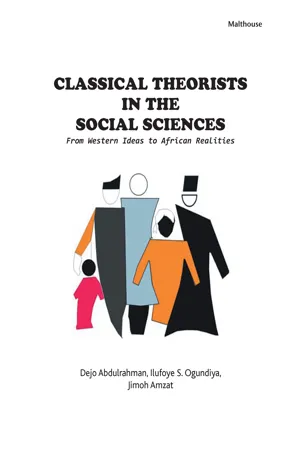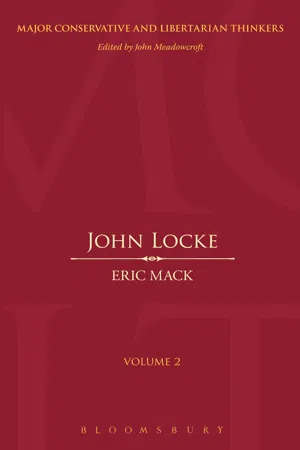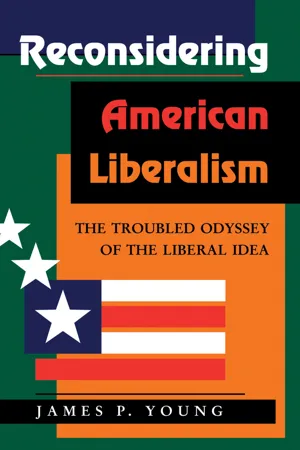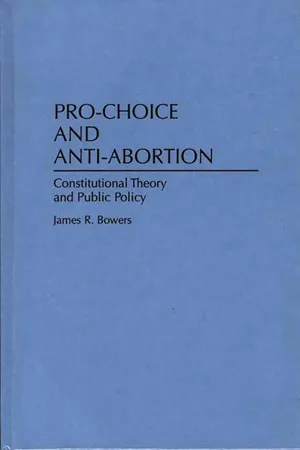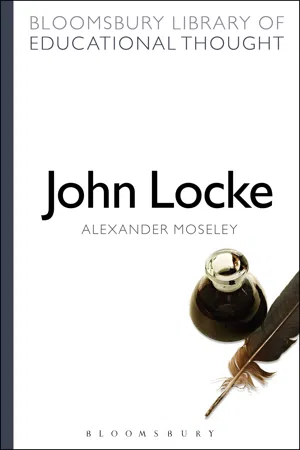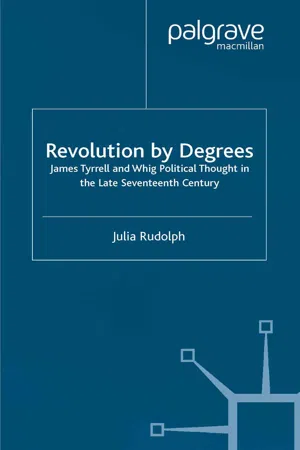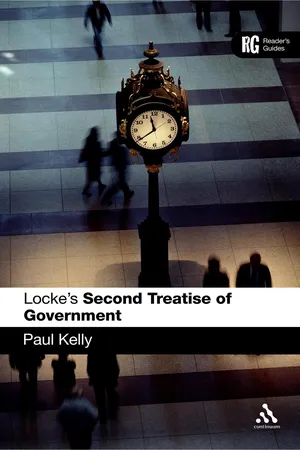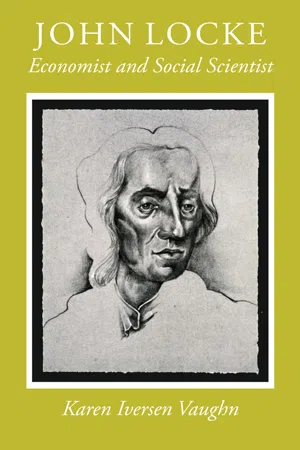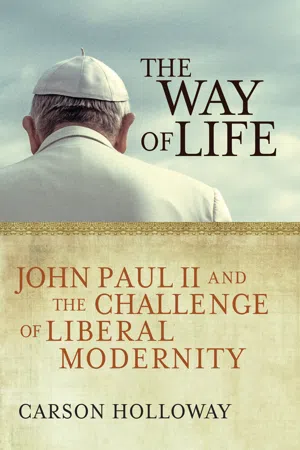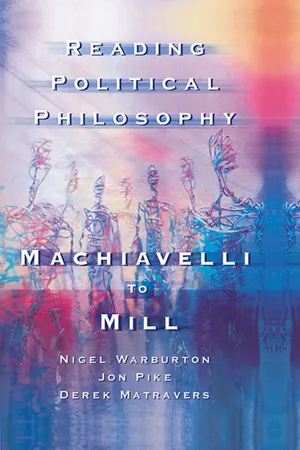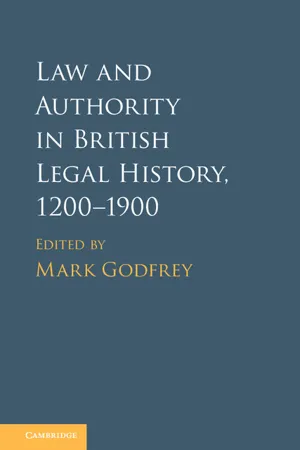History
John Locke
John Locke was a prominent English philosopher known for his influential ideas on liberalism and empiricism. He believed that individuals have natural rights to life, liberty, and property, and that government's role is to protect these rights. Locke's theories greatly influenced the development of democratic governance and the concept of individual rights in Western political thought.
Written by Perlego with AI-assistance
Related key terms
1 of 5
11 Key excerpts on "John Locke"
- eBook - PDF
Classical Theorists in the Social Scienc
From Western Ideas to African Realities
- Dejo Abdulrahman(Author)
- 2023(Publication Date)
- Malthouse Press(Publisher)
In the Two Treatises of Government, Locke defended the claim that men are by nature free and equal against claims that God had made all people naturally subject to a monarch. He argued that people have rights, such as the right to life, liberty, and property that have a foundation independent of the laws of any particular society. Locke used the claim that men are naturally free and equal as part of the justification for understanding legitimate political government as the result of a social contract where people in the state of nature conditionally transfer some of their rights to the government in order to better ensure the stable and comfortable enjoyment of their lives, liberty, and property (SEP, 2005). Rousseau’s work was dominated by the quest to find a way of preserving human freedom in a world where human beings are increasingly dependent on one another for the satisfaction of their needs (SEP, 2005). The Social Contract Theory of John Locke Locke was born in the village of Wrington, Somerset, on August 29, 1632. He was educated at the University of Oxford and lectured on Greek, rhetoric, and moral philosophy at Oxford from 1661 to 1664. John Locke (1632-1704) secured a prominent place in the history of English political thought. He is well acclaimed as a champion of natural rights, and also popularly known as the father of philosophic liberalism. The political ideas of Locke are to be found in his very important work „the Two Treatises on Civil Government (1690)’. The first Treatise is a logical refutation of the political and social philosophy of Sir Robert Filmer’s work, “Patriarcha” (1654). In the second Treatise Locke discussed his views on political philosophy. It is a comprehensive work explaining the origin, authority and purpose of civil government. Also, it deals with the state of nature, social contract, political society, forms of government, and right to property. - eBook - ePub
- Eric Mack(Author)
- 2013(Publication Date)
- Bloomsbury Academic(Publisher)
Part 1 Intellectual BiographyPassage contains an image 1 The Historical and Ideological Context of Locke’s Political Philosophy
John Locke is one of the great figures in the history of Western philosophy. He is one of the dozen or so thinkers who are remembered for their influential contributions across a broad spectrum of philosophical sub-fields—in Locke’s case, across epistemology, the philosophy of language, the philosophy of mind, metaphysics, rational theology, ethics, and political philosophy. He was a seminal figure in the rise of the modern intellectual world. Today Locke is primarily remembered as a defender of empiricism in epistemology and of individualist liberalism in political theory. This work aims to present a systematic account of John Locke’s political philosophy. This chapter lays out the main elements of that philosophy and the structure of the account that will follow; it also provides a brief sketch of the historical and ideological context of Locke’s political thinking. - eBook - ePub
Reconsidering American Liberalism
The Troubled Odyssey Of The Liberal Idea
- James Young(Author)
- 2018(Publication Date)
- Routledge(Publisher)
John Locke and the Theory of Liberal ConstitutionalismFROM THE TIME of the Mayflower Compact, the American colonies had had experience with the practice of government based on an agreement to certain specified principles. It was therefore natural that they would turn toward the social contract tradition in political theory as a device for the legitimation of their political actions. And for reasons to be explored in Chapter 3 , it was equally natural that they would turn to John Locke as a model contractarian. However, hovering in the background behind Locke was Thomas Hobbes, the prototypical contract theorist in the Anglo-American tradition. Hobbes presented an altogether harsher view of the problems of politics than did Locke, and a brief sketch of his views is useful as a counterpoint to the work of his successor.The central idea of all social contract theory is an agreement among free, equal individuals existing in a presocial state of nature to establish society and/or government according to some set of principles rooted in a particular conception of human nature. The idea is to picture human nature as it exists naturally, uncontaminated by the influences of society. It is this conception that is of crucial importance. For Hobbes, the picture was dark indeed. Men were restless, asocial, if not antisocial, atoms, driven by their desires and aversions in a relentless pursuit of the power that made possible such fleeting felicity as was conceivable in the absence of social and political order. The result was the notorious war of all against all, which tended to render felic-ity—the necessarily impermanent achievement of ones desires—impossible and to generate such a deep fear of violent death that it motivated human beings to enter into a social contract. The social contract obligated them to obey an all-powerful, unlimited sovereign for as long as the sovereign achieved the supreme goal of preserving peace. It should be carefully noted that the social contract creates a society and a state, but it by no means creates a meaningful sense of community. Instead, what is provided is the minimal degree of order that makes it possible for the Hobbesian man to pursue his self-defined personal interests with at least some minimum hope of achieving a modicum of success. Locke, although neither a follower of Hobbes nor an author writing to refute Hobbes, surely had this theory in the back of his mind while he was composing his political writings. - eBook - PDF
Pro-Choice and Anti-Abortion
Constitutional Theory and Public Policy
- James R. Bowers(Author)
- 1994(Publication Date)
- Praeger(Publisher)
2 An Introduction to John Locke's Liberalism THE STATE OF NATURE John Locke's liberalism is a natural rights theory of liberty and government. By natural rights, Locke can be understood to mean rights that are naturally possessed and not bestowed on individuals by some higher civil or political authority. Instead, these rights are discovered through reason by observing the natural relations among individuals (Lamprecht 1962,122). In asserting this claim of natural rights, Locke teaches that person- kind originally exists in a state of nature, a condition in which individuals live "together according to reason, without a common Superior on Earth, with Authority to judge between them" (Second Treatise, sec. 19). In th state of nature individuals enjoy perfect and total freedom to "order their actions, and dispose of their possessions and persons, as they think fit, within the bounds of the law of nature, without asking leave, or depending upon the will of any other man" (Second Treatise, sec. 4). In short, in a state nature, an individual is totally nonsubordinate to any other individual (Diamond 1976, 316). Locke further teaches that this state of nature is also a state of perfect equality in which all individuals are born to "the same advantages of Nature and use of the same faculties" (Second Treatise, sec. All individuals, therefore, enjoy the same liberty as others with "no one having more than another" (Second Treatise, sec. 4). The complete and eq liberty individuals possess in a state of nature is qualified in two important ways. First, when Locke writes that personkind's original condition is a state of nature, he does not mean that individuals exist outside of any society (McDonald 1985, 62). While they are autonomous beings, they do 12 Pro-Choice and Anti-Abortion not live autonomous lives completely removed from interactions with other individuals. - eBook - ePub
- Alexander Moseley, Richard Bailey(Authors)
- 2014(Publication Date)
- Bloomsbury Academic(Publisher)
Thoughts , some of which are more obvious than others.For example, one of the concerns we face when reading Locke is what to make of his argument for education’s purposes. The driving Platonic model throughout the ages has been to create a fit and educated population for the capable running of the state, or at least an educated citizenship who know their political and moral responsibilities – education is thus political in its essential aims. In Locke’s time, when the numbers of men (typically) destined for statesmanship was small, educational emphasis was on the majority gleaning enough to permit them to read the Bible and to deal with commercial and friendly correspondence; but when the numbers serving the state directly and indirectly increased with the modern expansion of government, it followed for many thinkers that education’s purpose was to be harnessed for the production of civil servants (at the higher echelons) and correspondingly supportive (even adulatory, or perhaps passive, or at least indifferent) citizens. Today, state-controlled schools in England include ‘Citizenship’ as a mandatory subject – but for what purpose? Politics has intruded severely into the running of schools and educational curricula that we can detect have a variety of purposes, some possessing not so hidden political agendas such as the stress on environmentalist ethics or, in England at least, on the acceptability or inevitability of the European Union. Yet was Locke concerned with citizenship, as it is presently understood? His answer may be surprising to many, for he poses the radical liberal claim that ‘Tis plain . . . that a Child is born a Subject of no Country or Government ’ (Two Treatises , II.118). This is certainly radical in a world of passports and controls, when children become the pawns in political games across borders, both by parents trying to secure an easier life elsewhere and by politicians seeking to ‘repatriate’ them to their parents’ homeland. Accordingly, for Locke and libertarians since, when the young man or woman becomes of age, he or she has the right to choose ‘what Body Politick he will unite himself to’ ( ibid - eBook - PDF
Revolution by Degrees
James Tyrrell and Whig Political Thought in the Late Seventeenth Century
- J. Rudolph(Author)
- 2002(Publication Date)
- Palgrave Macmillan(Publisher)
In particular, attention to some of the ideas Locke shared with the Whigs might illuminate the less radical impli- cations of the Lockean notion of the constituent authority of the people. With the notable exception of John Marshall’s important study of Locke’s heterodox religious beliefs, modern commentators generally focus upon the radicalism of Locke’s social and political views. 36 And arguments for the radicalism of Locke’s political thought rest, above all, upon the apparent novelty of his argument for dissolution, the possibility of an entire change in government and the image of this choice and power residing in a constituent people. Like many other Whig theorists Locke argued that the people are the source of governmental authority, and he based this claim on an understand- ing of natural law and a two-stage social contract. Locke posits that sovereign power is derived from free and equal individuals in a state of nature who transfer their individual power to execute the law of nature for the peace and preservation of mankind: ‘Where-ever, therefore, any number of Men are so united into one Society, as to quit every one his Executive Power of the Law of Nature, and to resign it to the publick, there and there only is a Political, or Civil Society.’ 37 Other Whigs similarly described this original liberty, necessity and the formation of a popular and a rectoral contract in a state of nature or in a Gothic or English history. Locke’s additional emphasis upon a natural right of punishment as well as preservation was also posited by Tyrrell. 38 160 Revolution by Degrees The comparison with Tyrrell’s theory of contract is instructive. As has been suggested, Locke’s Two Treatises were likely aimed not only to refute Filmer’s patriarchalism, but also to respond to Patriarcha non Monarcha, Tyrrell’s earlier contribution to the attack on Filmer. This suggestion finds some support in Tyrrell’s own interpretation of the objective of the Two Treatises. - eBook - PDF
Locke's 'Second Treatise of Government'
A Reader's Guide
- Paul Kelly(Author)
- 2007(Publication Date)
- Continuum(Publisher)
But Locke’s ideas were only one source, and a source that was carefully disaggregated. Locke’s defence of private property and its rights was pretty much common currency in many political theories which would have rejected other aspects of his thought, so it is di ffi cult to point to a strong principled defence of property rights as evidence of Locke’s in fl uence. Similarly Locke’s ideas on the separateness of powers are also part of the common currency of the American Founding, but these ideas are also found throughout the classical republican tradition and in French writers such as Montesquieu, who rejected the abstractness of Lockean rights theory. One idea central to Locke’s argument in the Second Treatise did not play a signi fi cant role in the debates surrounding the American Revolution or in similar debates in Europe in the late eighteenth century and that is the idea that political societies are ultimately based on an original social contract. By the mid-eighteenth century the use of an original contract had come under signi fi cant attack, fi rst by the Scottish philosopher David Hume (1711–76) and J-J. Rousseau (1712–78). Rousseau’s Discourse on the Origin of Inequality (1755) attacked the State of Nature arguments on which social contract theories such as Locke’s depended. For Rousseau the State of Nature merely re fl ected the vices of contem-porary society in a false account of the natural condition. Hume’s argument was addressed towards the contract basis of political society and the use of consent arguments to justify political oblig-ation. Hume’s argument developed in the Treatise of Human Nature and a short essay ‘Of the Original Contract’ was so devastating that the use of the social contract fell out of use in English-speaking political philosophy until it was resurrected by John Rawls in the 1970s. - eBook - ePub
John Locke
Economist and Social Scientist
- Karen Iversen Vaughn(Author)
- 2012(Publication Date)
- University of Chicago Press(Publisher)
FIVEJohn Locke, Social Scientist
We have already noted William Letwin’s thesis that Locke was an early scientific economist. Letwin’s argument was that Locke enunciated economic laws in an objective attempt to understand how the economy functioned rather than to justify his personal prejudices.1 The next question is the related, but still different, problem of whether or not Locke can be considered an early social scientist. It is not customary to think of social science as existing in the seventeenth century: one usually associates the beginnings of social science with the eighteenth century and the work of David Hume or Adam Smith. Yet if social science means an attempt to explain the actions of human beings on the basis of assumptions about uniquely human characteristics, it is not unreasonable to expect to find early efforts at social science existing prior to the more conscious attempts of the eighteenth and nineteenth centuries. In fact, a good argument can be made that Locke’s writings on politics and economics constitute one such early effort at social science.A precedent exists for arguing that Locke was an early social scientist in Joseph Schumpeter’s History of Economic Analysis. 2 There Schumpeter noted Locke’s contributions to the seventeenth-century theory of natural law, and ranked Locke along with Hobbes, Grotius, and Pufendorf, among others, as philosophers who, despite their Protestantism, were in the Scholastic tradition. These philosophers, he claimed, “were of the same professional type as the scholastics . . . went about the same task, by the same method, in much the same spirit,”3 and therefore could only be called laical or Protestant Scholastics. They were all influenced either directly or indirectly by medieval and late Scholastic writings, especially on natural law and jurisprudence, and in addition they followed much the same intellectual route the Scholastics had followed by going back to most of the same sources in ancient Greek and Roman literature. Most importantly, this group had as their aim according to Schumpeter the formulation of a comprehensive social science, “a comprehensive theory of society in all its aspects and activities—in which economics was neither a very important nor an independent element.”4 - eBook - PDF
The Way of Life
John Paul II and the Challenge of Liberal Modernity
- Carson Holloway(Author)
- 2011(Publication Date)
- Baylor University Press(Publisher)
To the extent that our understanding of these things is, for John Paul II, essential to sustaining a proper respect for the dig-nity of human life, we may wonder whether he would regard Locke’s teaching as providing some opening to the culture of death. We turn to Locke’s political teaching with a view to exploring this question. LOCKE’S THEISTIC NATURAL LAW Locke differs most obviously from Hobbes, and seems to move in the direction of John Paul II, in that he repeatedly affirms the existence of an objective natural law rooted in the will of God the creator. Locke is, to be sure, a state of nature theorist, and accordingly he begins from pre-suppositions that are in some respects similar to those of Hobbes. Locke holds that men are by nature in a prepolitical state of perfect freedom and equality. In this state all men may “order their Actions, and dispose of their Possessions, and Persons as they think fit . . . without asking leave, or depending upon the Will of any other Man.” Moreover, among men in the state of nature “all the Power and Jurisdiction is reciprocal, no one having more than another.” 1 Nevertheless, Locke departs radically from Hobbes in his under-standing of the status of morality in the state of nature. Hobbes, as we have seen, holds that the state of nature is utterly lawless. Terms like justice and injustice, good and evil, have no place there. Such principles can only come into existence with the creation, by agreement, of a sov-ereign who will make laws defining and enforcing principles of right and wrong. Hobbes does not merely claim that justice cannot be vindicated in the state of nature; rather, it has no existence at all. Hence his argu-ment that human reason is powerless to discern the difference between good and evil, notions of which are merely fleeting manifestations of men’s constantly changing passions. - eBook - ePub
Reading Political Philosophy
Machiavelli to Mill
- Derek Matravers, Jonathan Pike, Nigel Warburton(Authors)
- 2014(Publication Date)
- Routledge(Publisher)
3 John Locke: Second Treatise of Government Jon PikeBy the end of this chapter you should:- Have read Locke’s Second Treatise of Government and studied the most important sections in detail.
- Have a good understanding of Locke’s political theory.
- Be able to offer some criticism of that theory.
- Have continued and entrenched the discussion of the sources of rightful political authority.
- Be aware of some contemporary interpretations of Locke and of his continuing relevance to political philosophy.
- Have further developed your reading skills.
Introduction
Locke is widely held to be one of the founders of modern liberalism, and his Second Treatise of Government, with its clear advocacy of limited government, is one of liberalism’s founding documents. There are echoes of the language of the Second Treatise in the Constitution of the United States and in the United Nations Universal Declaration of Human Rights. However, the Second Treatise was not written in order to ‘found liberalism’ but to make a contribution to a political debate in England about the limits of a legitimate sovereign.For some time it was thought that the Second Treatise was a post hoc justification of the ‘Glorious Revolution’ of 1688 which deposed James II and put William of Orange on the British throne. But most historians believe that both the first and second treatises were composed between the years 1679 and 1682, and published later in the more favourable political climate after the Glorious Revolution.The Two Treatises of Government were written at a time when Locke’s political patron, Anthony Ashley Cooper, Earl of Shaftesbury, and probably Locke himself, were heavily involved in revolutionary politics. Shaftesbury was a leading figure in the Whig attempt to push through an Exclusion Bill (1680) which would prevent Charles II’s Roman Catholic brother James from inheriting the throne. For the Whig opponents of James, Catholicism was indissolubly tied to absolutism on the French model. Recent scholarship has shown how far Locke’s work reflects the revolutionary pamphlets of the time, and suggests that he was providing ‘a political declaration for the revolutionary movement of the 1680s’ (Ashcraft (1986 - Mark Godfrey(Author)
- 2016(Publication Date)
- Cambridge University Press(Publisher)
Christoph Luetge (Dordrecht/Heidelberg/New York/London: Springer, 2013), pp. 605–629; for more details see the contributions in The Social Con- tract from Hobbes to Rawls, eds. David Boucher and Paul Kelly (London: Routledge, 1994; repr. 2005), and L’Id´ ee contractuelle dans l’histoire de la pens´ ee politique Actes du Colloque International de l’A.F.H.I.P., septembre 2007 (Collection d’histoire des id´ ees politiques, vol. 19) (Aix-en-Provence: Presses universitaires d’Aix-Marseille, 2008). For a recent historical contextualisation see the essays by Deborah Baumgold, in Contract Theory in Histori- cal Context. Essays on Grotius, Hobbes, and Locke (London/Boston: Brill, 2010, accessed 18 June 2015, DOI: 10.1163/ej.9789004184251.i-190). 192 governmental authority and individual rights 193 legal doctrine and legal philosophy, this kind of regression to a zero point of mankind and human existence can serve different purposes. 2 First and foremost, it justifies the existence and, as a consequence, the binding power of legal rules and governmental dominion. Isidor of Seville (560–636), 3 for instance, explained the loss of human liberty to law and governmental power by the “sin of the first man” as the “penalty of slavery” handed out by God. 4 And, as a matter of fact, later on the contract as a device of individual liberty and formation of statehood would come to the fore as, for instance, in Thomas Hobbes’ (1588–1679) 5 famous definition of the commonwealth as “One person, of whose Acts a great Multitude, by mutuall covenants one with another, have made themselves every one the Author, to the end he may use the strength and means of them all, as he shall think expedient, for their Peace and Common Defence”. 6 But there is another important function of narratives about the origins of mankind and law.
Index pages curate the most relevant extracts from our library of academic textbooks. They’ve been created using an in-house natural language model (NLM), each adding context and meaning to key research topics.
